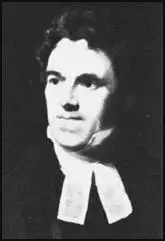Cambridge University

The first students arrived in Cambridge in 1209 after fleeing from rioting in Oxford. Cambridge's first college, Peterhouse, was endowed by Hugh de Balsham, the Bishop of Ely, in 1284. Following the example of Merton at Oxford University, Peterhouse was a self-governing college.
In the middle of the 14th century two colleges were established by wealthy women, Elizabeth de Clare (Clare College, 1326) and Mary of Chatillion (Pembroke College, 1347). Thirteen other colleges were founded by the end of the 16th century including Gonville and Caius (1348), Corpus Christi (1352), King's (1441), Queens' (1448), St Catherine's (1473), Jesus (1496), Christ's (1505), St John's (1511), Magdalene (1542) Trinity (1544), Emmanuel (1584). Four more colleges were established in the 19th century including two for women (Girton, 1869 and Newnham 1871). In all, there are now 33 university colleges in Cambridge.
In 1615 Cambridge University was granted the right to elect two MPs. The vote was given to all members of the senate. Between 1784 and 1806 one of Cambridge's MPs was William Pitt. In 1826 Lord Palmerston, who had been Cambridge's representative since 1811, was defeated as a result of him supporting the proposed Parliamentary Reform Act.
Primary Sources
(1) Daniel Defoe, A Tour Through the Whole Island of Great Britain (1724)
I come now to the town, and university of Cambridge. The colleges, halls, and houses are promiscuously scattered up and down among the other parts, and some even among the meanest of the other buildings; yet they are incorporated together, by the name of the university, and are governed apart, and distinct from the town, which they are so intermixed with. As their authority is distinct from the town, so are their privileges, customs and government: they choose representatives, or Members of Parliament for themselves. As the colleges are many, and the gentlemen entertained in them are a very great number, the trade of the town very much depends upon them, and the tradesman may justly be said to get their bread by the colleges.
